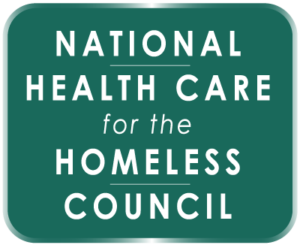Bobby Watts is Director of the NIMRC Initiative and CEO of the National Health Care for the Homeless Council.
NIMRC – Why Now?
For many years, the National Health Care for the Homeless Council has worked to support, promote, improve, and expand the practice of Medical Respite, and the Council is recognized as the undisputed expert on Medical Respite Care. So, many may wonder: Why create the National Institute for Medical Respite Care (NIMRC) now? Here are three of the reasons:
The Pandemic
The COVID-19 pandemic has made many more communities, some for the first time, aware of the importance of addressing the health needs of people experiencing homelessness – during the pandemic and beyond. As a result, more people have become aware of Medical Respite and approached the Council with requests for information, training, and technical assistance. Many of those requesting assistance are not part of health centers, but local governments, hospitals, health plans, and local systems responding to homelessness. In order to meet the increase, we need to create a new vehicle that will allow us to deliver information, training, and technical assistance that is tailored to the needs of these audiences.
Alternative Care Sites
The Council and its Respite Care Providers Network are concerned with promoting high-quality and value-driven services that are patient-centered and respect the dignity of every individual in medical respite programs. Several communities have responded to the COVID pandemic by setting up new arrangements to keep people without homes safe. These Alternate Care Sites (ACS) are usually congregate health units in arenas or individual rooms in hotels. These efforts are laudable, and they have the same general goal as Medical Respite – to meet the needs of people without homes who don’t have a clinical reason to be in a hospital, but are not well enough to be in a shelter or on the streets. Many of the ACSs were operated or supported by Medical Respite or HCH programs or local health departments, and are excellent. Too many, however, did not have the right staffing or values to sufficiently protect and promote the health and safety of the clients whose physical, emotional, and mental needs were heightened during these unsettling times and situations.
Racial Justice
The Council has always been grounded in human rights and social justice and, for the past three years, we’ve had a special focus on racial justice. We’ve completed two learning collaboratives comprised of HCH and Medical Respite programs that lasted six and eight months, respectively. They were focused on how organizations can adopt and incorporate Diversity, Equity, and Inclusion principles and practices. The murder of George Floyd has created an unprecedented desire to address structural inequities, not only in society, but also in corporations and organizations.
In Conclusion: Now
Not only is the need to establish and sustain more values-driven Medical Respite programs greater now more than ever, so is the willingness to accept and act upon that message. And that is why we are establishing NIMRC NOW.

